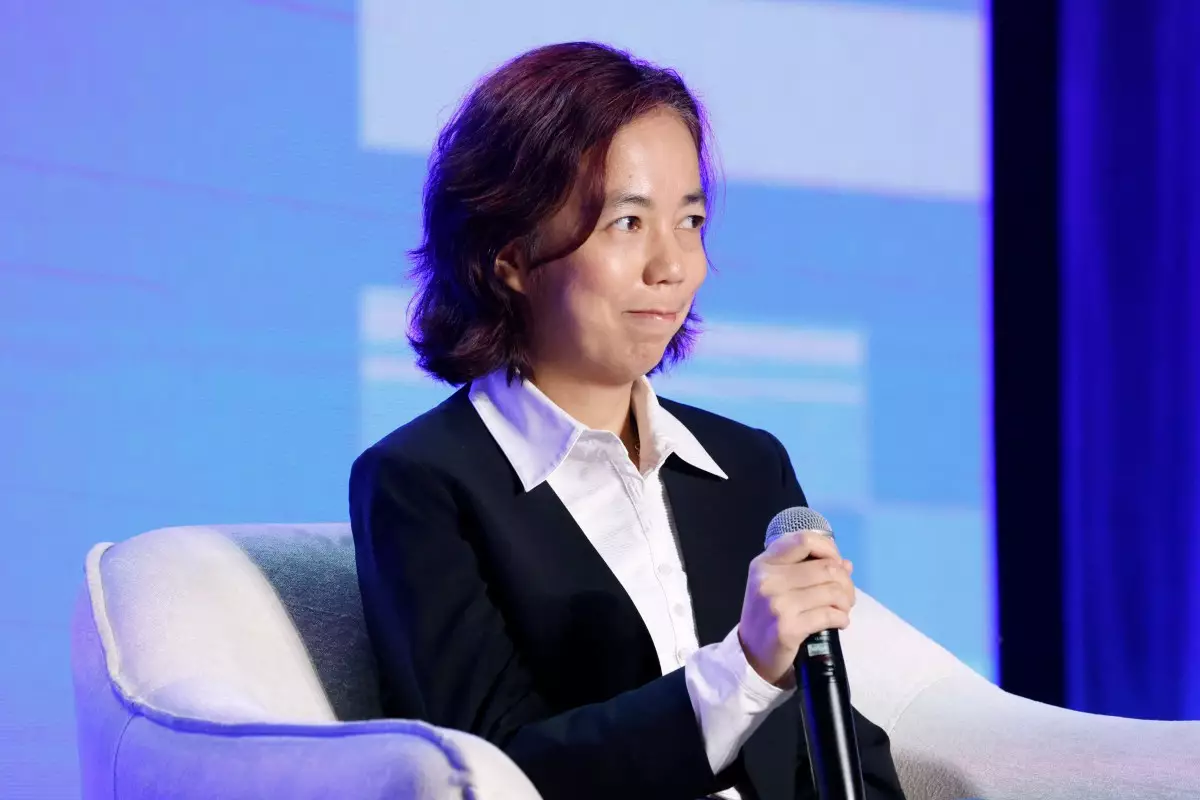In the rapidly evolving landscape of artificial intelligence, cloud computing giants are racing to secure partnerships with groundbreaking startups. The recent announcement of Fei-Fei Li’s venture, World Labs, selecting Google Cloud as its primary computing partner marks a significant turn in this ongoing competition. This partnership not only signifies a financial commitment that could reach hundreds of millions but also emphasizes the growing importance of robust computational resources in developing advanced AI models. With a valuation exceeding a billion dollars, World Labs represents what many call an “AI unicorn,” capturing the interest of major players in cloud services and signaling a shift in AI development ecosystems.
Fei-Fei Li, renowned for her contributions to AI, previously held the position of chief scientist at Google Cloud, yet the tech giant asserts that her past role did not influence this significant collaboration. The focus now rests on the capabilities and infrastructure that Google can offer, which include a suite of tools targeted at the demands of modern AI workloads.
In an industry characterized by fierce rivalry, cloud service providers such as Google, Microsoft, and Amazon Web Services (AWS) are keenly aware of the immense value that comes with partnerships like this. Companies such as OpenAI and Anthropic have already established their strongholds—OpenAI exclusively utilizing Microsoft Azure while Anthropic splits its operations between AWS and Google Cloud. These partnerships not only bring in revenue but also create an ecosystem where cloud providers can cultivate relationships with pioneering AI companies.
World Labs aims to develop “spatially intelligent” AI models capable of understanding and generating video and geospatial data. This ambition necessitates substantial computational resources, further highlighting the importance of dependable cloud infrastructure. James Lee, the General Manager of Startups and AI at Google Cloud, implies that the startup will leverage this vast funding for licensing GPU servers, a crucial factor for performance optimization in AI training.
A noteworthy aspect of this partnership is World Labs’ decision to utilize GPU systems for training, despite Google Cloud’s promotion of its proprietary tensor processing units (TPUs). The cloud provider is actively seeking to reduce its dependency on Nvidia as a supplier of GPUs due to widespread shortages and rising demand. Nonetheless, GPUs remain the indisputable choice for many startups engaged in AI research and application development.
As the cloud market continues to grow, startups often find themselves at a crossroads when choosing their computing platforms. Though Google Cloud would not divulge the reasoning behind World Labs’ preference for GPUs at this stage, it highlights an optimizing approach: working collaboratively with the startup to tailor computing services that align with their immediate product needs.
This adaptability in service provision exemplifies a broader trend among cloud providers, who are striving to accommodate varying technical requirements and expand their offerings outside traditional frameworks. In the case of World Labs, there lies a future possibility of transitioning to TPUs or other forms of computational architecture as the project scales.
Equipped with vast computational power, cloud providers frequently promise extraordinary resources to potential partners. For instance, Google has previously pledged extensive GPU clusters for other AI initiatives, with configurations capable of rivaling high-performance gaming systems. However, promises alone do not equate to fulfillment, as evidenced by delays and challenges faced by competitors like Microsoft, which is reportedly having difficulties meeting the soaring computational demands of OpenAI.
While World Labs has entered into a non-exclusive agreement with Google Cloud, suggesting ample opportunity for collaboration with other providers in the future, the predominant expectation is that Google will continue to capture a significant portion of its computational business.
The current partnership landscape is a reflection of an escalating race for AI talent and technological infrastructure. As innovations emerge and the demand for computing power grows, the cloud providers’ strategies will have far-reaching implications. Fei-Fei Li’s World Labs, with its ambitious goal of creating sophisticated multimodal AI models, stands at the forefront of this dramatic shift. This collaboration not only augments Google Cloud’s position as a leader in AI infrastructure but also underscores a transformative moment in fostering the next generation of AI advancements.
The convergence of financial backing, technological expertise, and strategic partnerships sets the stage for a new chapter in AI development, where the quest for excellence will inevitably define the landscape for years to come.

